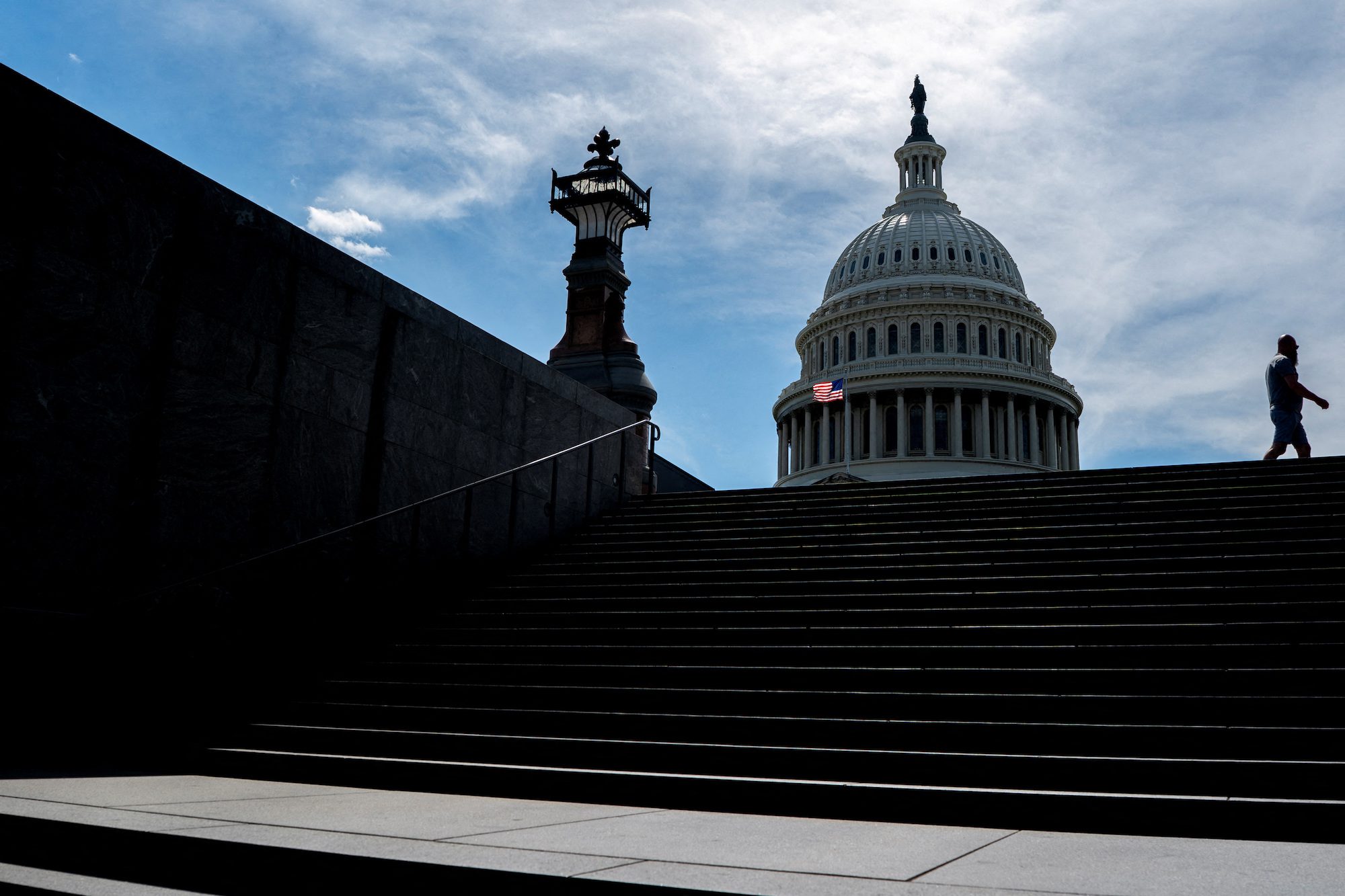The U.S. House of Representatives today passed a package of nine transportation-related bills, including several aimed at enhancing maritime supply chain security, reinforcing the U.S. flag fleet, and cracking down on foreign adversary involvement at American ports.
Among the most significant measures passed are H.R. 2390, the Maritime Supply Chain Security Act and H.R. 252, the Secure Our Ports Act of 2025—bills introduced by Reps. David Rouzer (R-NC) and Ken Calvert (R-CA), respectively. The two bills are designed to reduce the influence of China and other adversaries on critical U.S. port infrastructure.
H.R. 2390 amends the Port Infrastructure Development Program (PIDP)—a major federal grant program administered by MARAD—to ensure that funding from the program can be used to replace port cranes containing Chinese-origin hardware or software, a growing concern given that Chinese company ZPMC manufactures nearly 80% of the world’s ship-to-shore cranes. National security officials have warned that these cranes may be equipped with data-collection technology or backdoors that pose cybersecurity risks to U.S. ports.
H.R. 252 goes further by prohibiting entities owned or controlled by China, Russia, North Korea, or Iran from owning, leasing, or operating U.S. port facilities that are subject to Maritime Transportation Security Act (MTSA) plans. That would effectively block foreign state-owned enterprises from managing sensitive infrastructure in U.S. ports.
Transportation and Infrastructure Committee Chairman Sam Graves (R-MO) said the bills will “strengthen our supply chain and limit the potential for Chinese, Russian, North Korean, and Iranian influence at U.S. ports. He further described them as “common-sense” measures that will help to secure the nation’s maritime transportation system.
Also included in the legislative package is H.R. 2035, the American Cargo for American Ships Act, introduced by Rep. Salud Carbajal (D-CA). The bipartisan bill would mandate that 100% of Department of Transportation cargoes be shipped on U.S.-owned, U.S.-crewed commercial vessels, up from 50 percent currently, marking a major expansion of cargo preference rules that could provide a boost to the shrinking U.S.-flag fleet.
Supporters say the bill will strengthen the domestic maritime industry and enhance national sealift capacity, which has been flagged repeatedly as a weakness by the Department of Defense. Carbajal serves as Ranking Member on the House Coast Guard and Maritime Transportation Subcommittee.
Other maritime-relevant legislation passed today includes H.R. 2351, a bill introduced by Rep. Addison McDowell (R-NC) directing the Coast Guard to update policies related to drug trafficking enforcement and opioid overdose treatment. The measure also addresses the use of unmanned vessels for smuggling and hidden drug stowage on unsuspecting commercial ships.
The House passed the bills under suspension of the rules, a fast-track process used for noncontroversial legislation, with broad bipartisan support. The package now moves to the Senate, where it faces an uncertain timeline amid a packed legislative calendar.
If signed into law, the bills would represent a meaningful step toward reshoring control over maritime infrastructure and reinvesting in the long-term health of the U.S.-flag merchant marine.

 Join The Club
Join The Club










